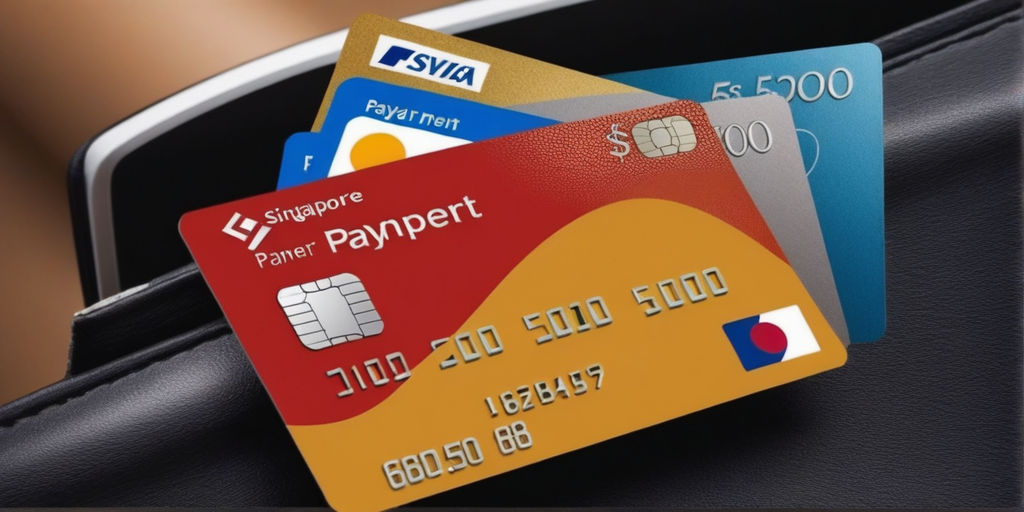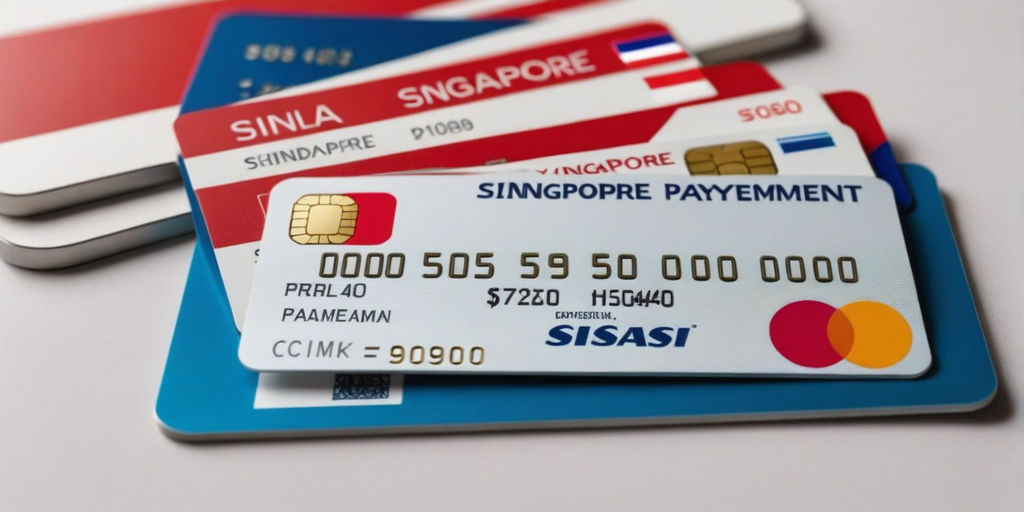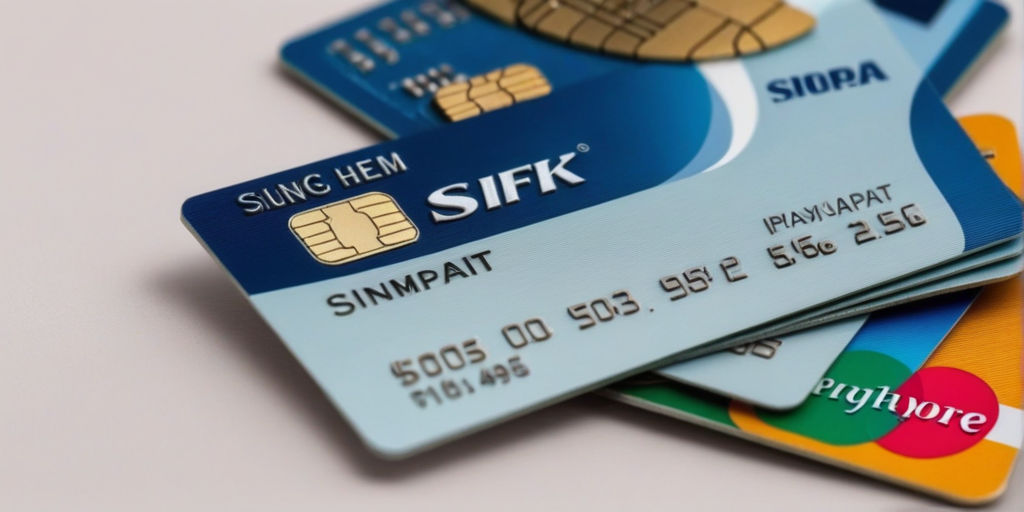
Are you interested in purchasing a property in Singapore, but struggling to come up with the necessary funds for a down payment? If so, a Deferred Payment Scheme (DPS) may be the solution you’ve been looking for. This payment arrangement is becoming increasingly popular among homebuyers in Singapore, and for good reason.
A Deferred Payment Scheme allows you to move into your new home immediately, without having to worry about making loan repayments for the next two to three years. During this time, you’ll be exempt from loan repayments, giving you the opportunity to save up and prepare for future payments. If you’re interested in learning more about Deferred Payment Schemes in Singapore, keep reading to discover everything you need to know.
Key Takeaways
- Deferred Payment Schemes allow you to move into your new home immediately, without having to worry about making loan repayments for the next two to three years.
- Eligibility and restrictions apply when it comes to Deferred Payment Schemes in Singapore.
- While Deferred Payment Schemes have their advantages, there are also risks and financial considerations to keep in mind.
Understanding Deferred Payment Schemes

If you are planning to buy a property in Singapore, you might have come across the term “Deferred Payment Scheme” or DPS. DPS is a popular payment scheme that allows homebuyers to defer a portion of their payment until a later date. In this section, we will discuss the basics of Deferred Payment Scheme, its key features, and how it differs from the Progressive Payment Scheme.
Basics of Deferred Payment Scheme (DPS)
The Deferred Payment Scheme (DPS) is a payment method for purchasing properties in Singapore. Under this scheme, you can pay a portion of the purchase price upfront (usually 20%) and defer the remaining payment later. This deferred payment usually ranges from 1 to 3 years, depending on the developer and the project.
DPS is commonly offered by developers of private condos and Executive Condos (ECs). It is important to note that DPS is not available for all projects and may not be offered by all developers.
Deferred vs Progressive Payment Schemes
The Progressive Payment Scheme is the standard payment method for buying properties in Singapore. Under this scheme, buyers need to pay a certain amount every time a specific milestone is achieved or attained. For instance, when the foundation is laid, when the roof is completed, when the walls are erected, etc.
The key difference between Deferred Payment Scheme and Progressive Payment Scheme is that DPS allows you to defer a portion of your payment to a later date, while PPS requires you to make payments at specific milestones.
Key Features of DPS
Here are some key features of Deferred Payment Scheme that you should be aware of:
- Downpayment: You need to pay a downpayment of 20% of the purchase price upfront.
- Property Tax: You will be liable for property tax from the date of the Temporary Occupation Permit (TOP) or the date of the Notice of Vacant Possession (NVP), whichever is earlier.
- Interest: You will need to pay interest on the deferred payment. The interest rate varies from project to project and can range from 2% to 3% per annum.
- Payment Schedule: The deferred payment schedule and the interest rate will be outlined in the Sale and Purchase Agreement (SPA).
In summary, Deferred Payment Scheme (DPS) is a payment method that allows you to defer a portion of your payment to a later date. It is commonly offered by developers of private condos and Executive Condos (ECs). DPS is different from the Progressive Payment Scheme in that it allows you to make payments at a later date, while PPS requires you to make payments at specific milestones.
Eligibility and Restrictions

If you’re considering the Deferred Payment Scheme (DPS), it’s essential to understand the eligibility and restrictions. This section will explore who qualifies for DPS, regulatory constraints, and developers’ conditions.
Who Qualifies for DPS?
The DPS is available to Singaporeans, Permanent Residents, and foreigners who meet specific eligibility criteria. To qualify for DPS, you must:
- Have a valid Singaporean Identity Card (for Singaporeans) or a valid passport and employment pass (for foreigners)
- Be at least 21 years old
- Not own more than one residential property
- Meet the financial institution’s credit assessment criteria
Regulatory Constraints
The Monetary Authority of Singapore (MAS) regulates the DPS. The MAS has set guidelines to ensure that the DPS is not misused. These guidelines include:
- A maximum loan-to-value ratio of 45% for residential properties
- A minimum down payment of 25% in cash or CPF savings
- A qualifying certificate (QC) for foreign developers who want to buy residential land for development
Developers’ Conditions
Developers who offer DPS may impose their conditions. These conditions may include:
- A higher purchase price for properties under DPS
- A shorter leasehold period
- A higher interest rate for the deferred payment period
It’s essential to read and understand the terms and conditions of the DPS before committing to it. You should also compare the DPS with other payment schemes to determine which one is best for you.
In summary, the DPS is available to Singaporeans, Permanent Residents, and foreigners who meet specific eligibility criteria. The MAS regulates the DPS, and developers who offer DPS may impose their conditions. It’s essential to read and understand the terms and conditions of the DPS before committing to it.
Advantages of Deferred Payment Schemes

If you are considering buying a property in Singapore, then you might have heard of the Deferred Payment Scheme (DPS). This payment plan is a popular option for many homebuyers and property investors in Singapore. Here are some of the advantages of the Deferred Payment Scheme that you should know about:
Enhanced Cash Flow Management
One of the most significant advantages of the Deferred Payment Scheme is that it allows you to manage your cash flow more effectively. With the DPS, you can own a property with very limited cash flow or cash outlay. This means that you do not have to pay for stamp duties, property taxes, maintenance fees, and other charges during the deferred period. By deferring the payment, you can use your cash for other investments or expenses.
Flexibility for Homebuyers
Another advantage of the Deferred Payment Scheme is that it provides flexibility for homebuyers. With the DPS, you can escape two years of interest repayments. This means that you have more time to raise cash and pay off your loan. You can also choose to pay off your loan earlier if you have the means to do so. This flexibility allows you to manage your finances better and plan for the future.
Benefits for Property Investors
The Deferred Payment Scheme is typically more appealing to property investors who want to earn rental income on their initial investment. With the DPS, you can start earning rental income immediately after the completion of the property. This means that you can start earning a return on your investment without having to pay for the property immediately. Additionally, the DPS allows you to purchase multiple properties without having to pay for all of them upfront. This means that you can diversify your portfolio and increase your potential returns.
In summary, the Deferred Payment Scheme offers enhanced cash flow management, flexibility for homebuyers and benefits for property investors. If you are considering buying a property in Singapore, then the DPS might be an attractive option for you.
Disadvantages and Risks

When considering the Deferred Payment Scheme (DPS), it is important to weigh the potential disadvantages and risks that come with it. Here are some of the key factors you should consider:
Potential Financial Risks
One of the biggest risks associated with the DPS is the potential for financial strain. While the scheme allows you to defer payment of a significant portion of the property price, you will still be required to make monthly repayments on the outstanding loan. This means that you will need to have a stable source of income to cover these repayments, which can be challenging if you experience a sudden change in your financial circumstances.
Market Volatility Considerations
Another factor to consider is the impact of market volatility on your investment. Property prices can fluctuate significantly over time, and if you have deferred payment on a property that experiences a drop in value, you may find yourself in a difficult financial situation. It is important to carefully consider the state of the property market before opting for the DPS.
Impact of Economic Changes
The DPS can also be affected by changes in the economy. For example, the COVID-19 pandemic has had a significant impact on the property market, with many buyers and sellers experiencing financial difficulties. If the economy experiences a downturn, you may find it difficult to sell your property or make repayments on your outstanding loan.
To mitigate these risks, it is important to carefully assess your financial situation and consider all of the potential outcomes before choosing the DPS. You should also seek advice from a financial advisor or property expert to help you make an informed decision.
Financial Considerations

When considering a deferred payment scheme (DPS) for your property purchase, there are several financial considerations you should keep in mind. Here are some of the most important factors to consider:
Calculating the Purchase Price
When calculating the purchase price, keep in mind that the DPS allows you to defer a portion of the payment. This means that the purchase price will be higher than if you were paying in full upfront. You should factor in the interest rates and other fees associated with the DPS to determine the final purchase price.
Interest Rates Impact
Interest rates can have a significant impact on the overall cost of your property purchase. With a DPS, the interest rates may be higher than if you were paying in full upfront. Be sure to calculate the total interest paid over the deferred period to determine the true cost of the DPS.
Stamp Duties and Other Fees
In addition to the purchase price and interest rates, you should also consider the stamp duties and other fees associated with the DPS. These fees can add up quickly and significantly impact the total cost of your property purchase. Be sure to factor them into your calculations when deciding whether a DPS is right for you.
Overall, a DPS can be a great option for those who want to defer a portion of their property purchase payment. However, it’s important to carefully consider all of the financial implications before making a decision. By calculating the purchase price, factoring in interest rates, and considering stamp duties and other fees, you can make an informed decision that’s right for you.
Case Studies and Real-World Examples

Success Stories
When it comes to the Deferred Payment Scheme in Singapore, many success stories have been recorded. For instance, OUE Twin Peaks, a luxurious development located in the Orchard area, implemented the scheme to attract more buyers. The scheme allowed buyers to defer payment for two years, and as a result, the development sold more than 80% of its units within a few months.
Similarly, The Interlace, a development located in Depot Road, also implemented the scheme. The scheme allowed buyers to pay only 20% of the purchase price upfront, with the remaining amount to be paid later. As a result, the development sold more than 80% of its units within a few months of implementing the scheme.
Another success story is D’Leedon, a development located in Farrer Road. The development implemented the scheme, and as a result, it sold more than 90% of its units within a few months.
Challenges Faced by Homebuyers
Although the Deferred Payment Scheme has been successful in attracting buyers, it has also presented some challenges. For instance, the Experiential Leasing Scheme, which allows buyers to rent out their units for up to two years before taking possession, has been criticized for being too expensive.
Additionally, some buyers have complained about the lack of transparency in the scheme. For instance, some buyers have complained that they were not informed about the interest rates and other charges associated with the scheme.
Overall, the Deferred Payment Scheme has been successful in attracting buyers to developments such as OLA, but it has also presented some challenges. As a homebuyer, it is important to weigh the pros and cons of the scheme before making a decision.
Frequently Asked Questions

What’s the excitement about using a deferred payment plan for property purchases?
Using a deferred payment plan for property purchases can be exciting for several reasons. Firstly, it allows you to move into your new home without having to pay the full purchase price upfront. This means you can enjoy your new home while you continue to save up for the remaining payments. Secondly, it allows you to take advantage of any potential capital appreciation of the property while you are still making payments. Finally, it can be a more affordable option for those who may not have the financial means to pay the full purchase price upfront.
Can you walk me through the steps involved in a progressive payment scheme?
A progressive payment scheme involves making payments in stages, as the property is being constructed. The first payment is usually a booking fee, followed by a down payment of around 20% of the purchase price. The remaining payments are made in instalments, with each payment being a percentage of the purchase price, and are tied to the completion of certain stages of the construction process.
What should I be aware of before opting for an Executive Condominium’s deferred payment option?
If you are considering an Executive Condominium’s deferred payment option, you should be aware that there are certain eligibility criteria that you must meet. For example, you must be a Singapore citizen or permanent resident, and your household income must not exceed a certain amount. Additionally, you should be aware that the deferred payment option may come with higher interest rates and fees compared to a standard payment plan.
How does the Additional Buyer’s Stamp Duty (ABSD) impact my deferred payment plan?
The ABSD is a tax that is imposed on certain property purchases, including those made under a deferred payment plan. The amount of ABSD that you will have to pay depends on various factors, such as your residency status and the number of properties that you currently own. It is important to factor in the cost of the ABSD when considering a deferred payment plan.
Could you highlight the potential drawbacks of choosing a deferred payment method?
While a deferred payment method can be an attractive option for some homebuyers, there are also potential drawbacks to consider. For example, you may end up paying more in interest and fees over the long term, compared to a standard payment plan. Additionally, if the property does not appreciate in value as expected, you may end up owing more than the property is worth.
What’s the difference between deferred down payments and standard BTO down payments?
A deferred down payment is a payment arrangement where you pay only a portion of the purchase price upfront, and the remaining sum is deferred until later. In contrast, a standard BTO down payment is a fixed percentage of the purchase price that must be paid upfront. The main advantage of a deferred down payment is that it allows you to move into your new home without having to pay the full purchase price upfront, while the main advantage of a standard BTO down payment is that it may come with lower interest rates and fees.

